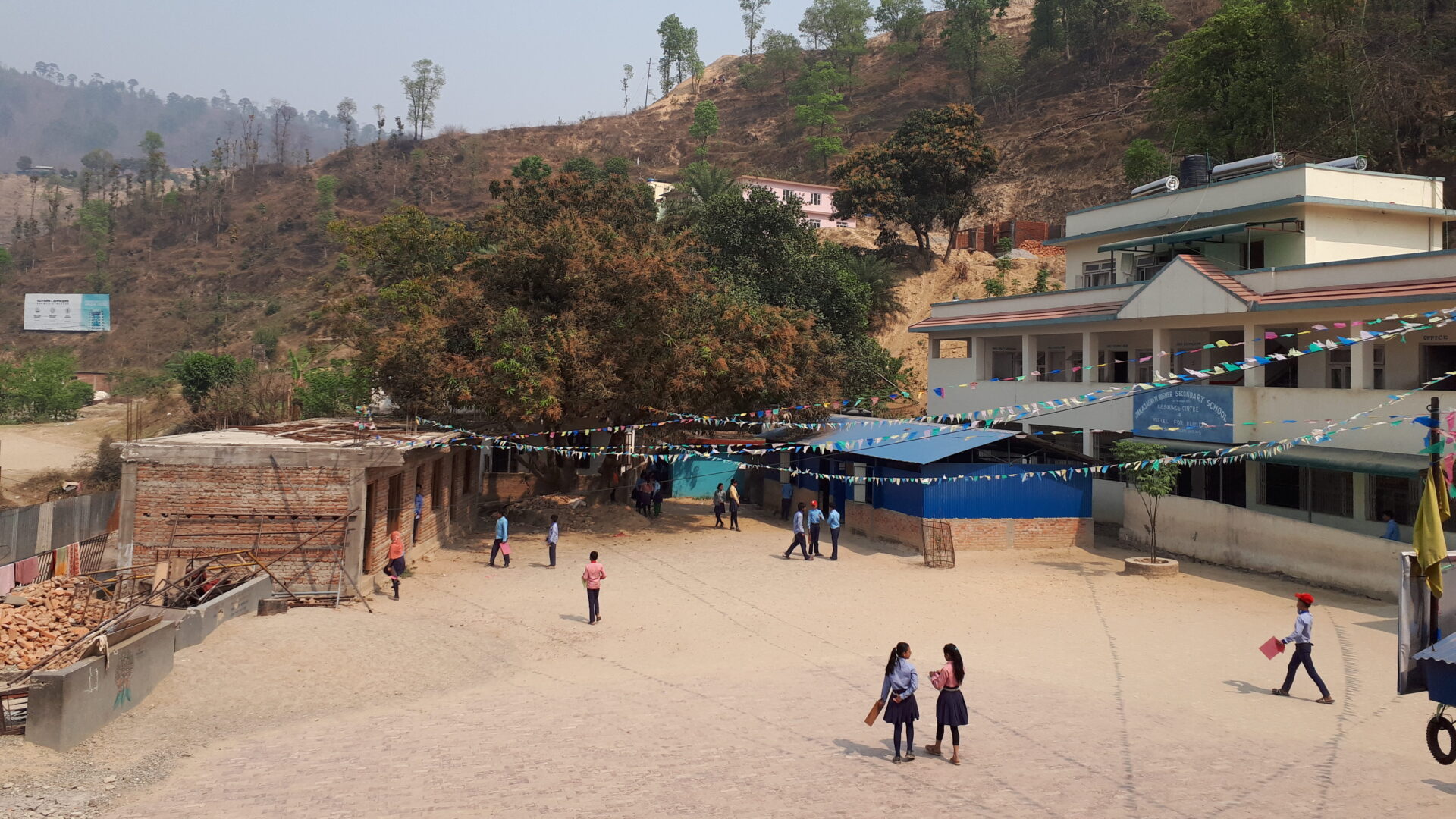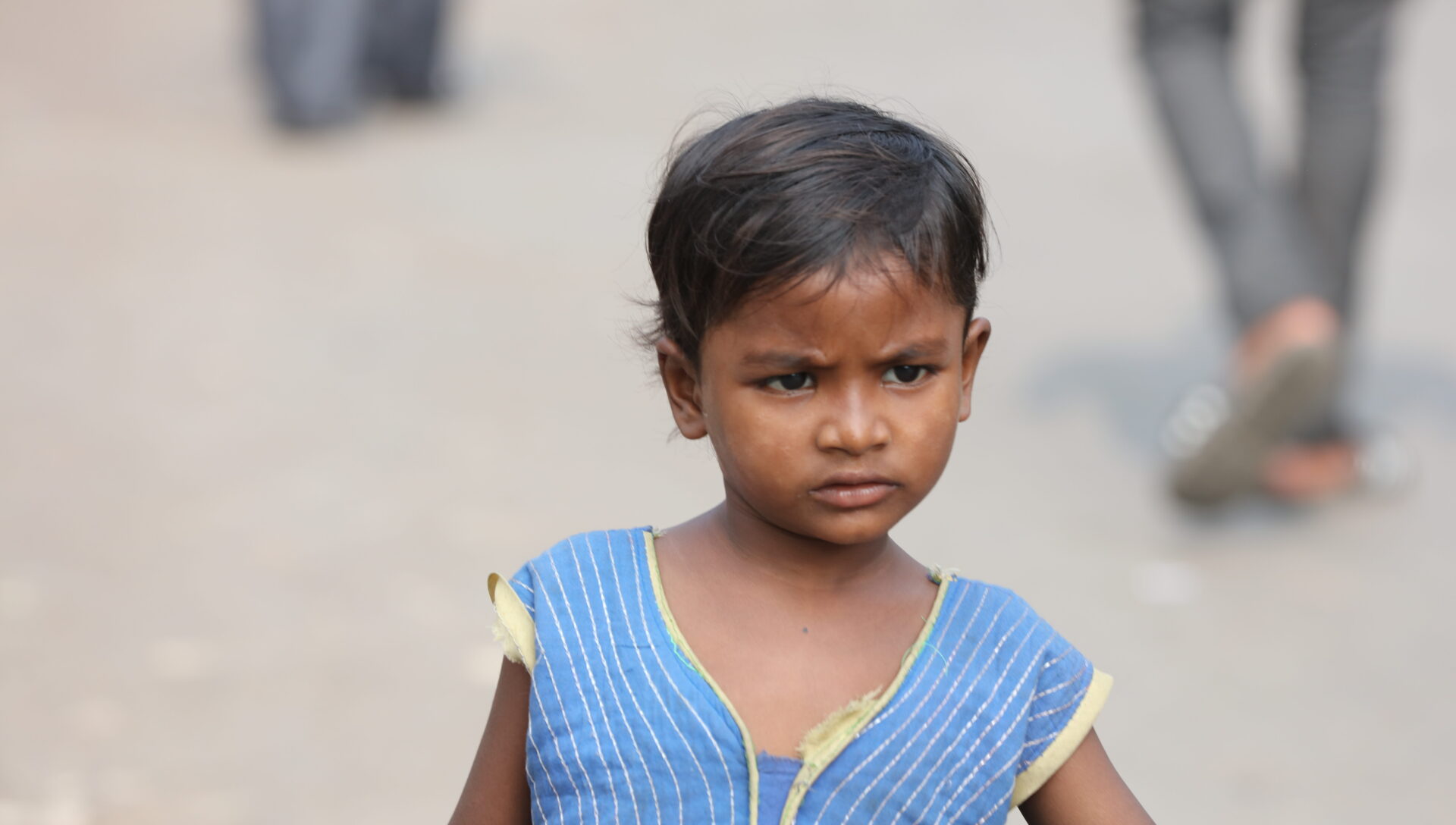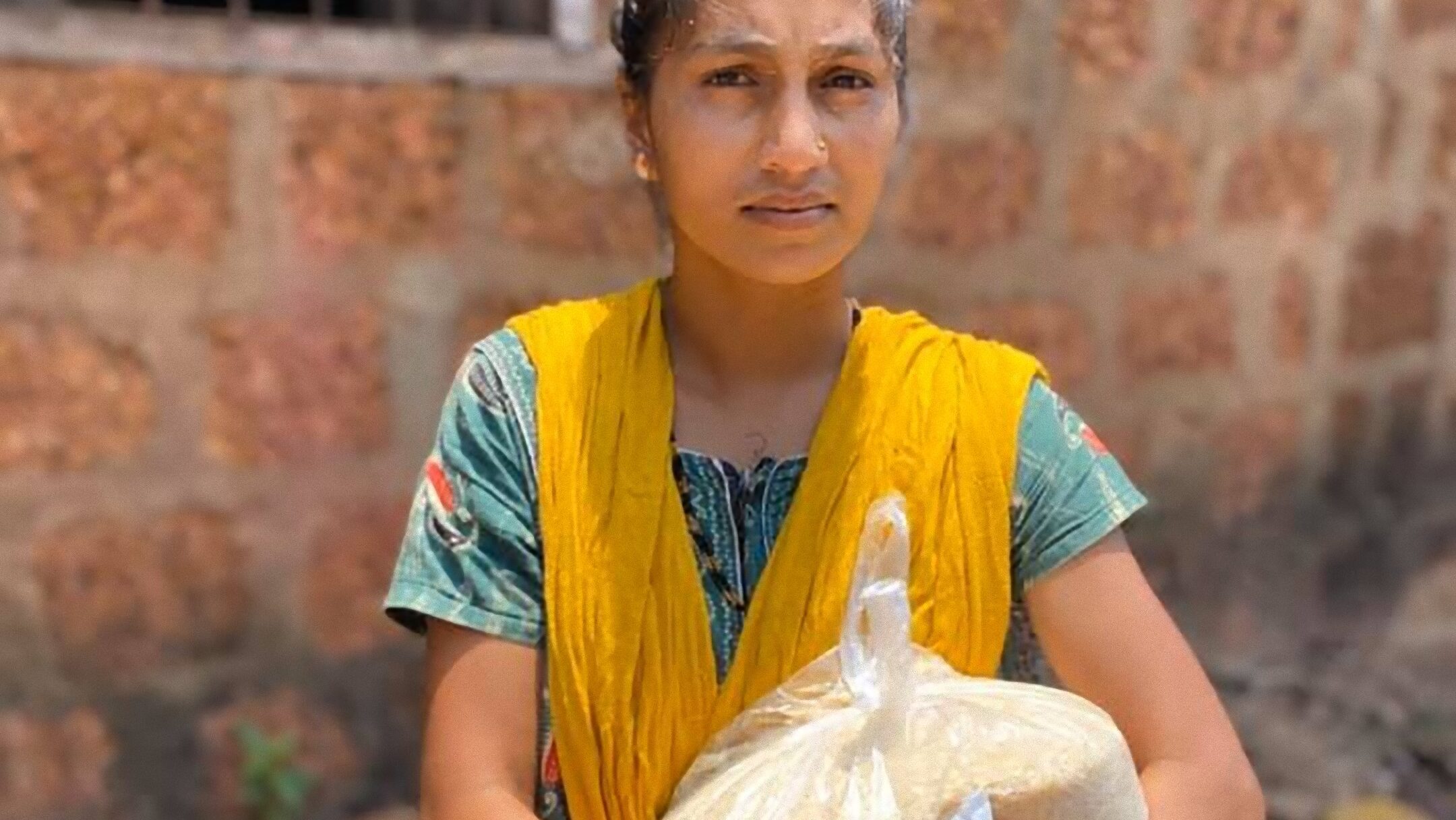When India imposed a strict lockdown at the end of March to control Covid-19, public life came to a standstill in large parts of India. Despite rising corona numbers, the lockdown was lifted for the most part at the end of May. This will also enable the Usthi projects to partially resume operations. Whether the schools will be able to reopen soon is not yet clear and is the responsibility of individual states.
The Indian population had only four hours to stock up on the essentials when Prime Minister Narendra Modi announced the lockdown on 24 March 2020. The measures particularly affected the poorest people in the country. Countless day labourers lost their jobs and were faced with no income from one day to the next. The, for the most part, single mothers of the school children supported by Usthi in Hyderabad also lost their income. Thanks to generous donations, Usthi and our local partner were able to help them with an emergency relief campaign.
The Usthi projects also almost came to a complete stop during this time. At the end of May, the lockdown was lifted, despite increasing Covid-19 case numbers, in order to prevent a further downturn in the Indian economy and to minimise the socially devastating consequences for the population. With the end of the lockdown, the projects have also been able slowly to resume operations.
In Hyderabad, where Usthi supports school children financially and with tutoring, it is currently thought that a return to regular school attendance can be expected in July at the earliest. Until then, however, distance learning will take place and the 10th graders who live in our homes will prepare for their final exams on their own. Vocational training programmes are able to start again from 1st July. Hopefully by then, all the girls and young women who had to leave the shelter due to official orders will be able to take up their places in the communal apartments again and continue their vocational training. In the current project year, there has also been a further expansion, which will now enable even more women to find a place in the shelter for victims of sexual abuse.
In West Bengal and Odisha, where the three Usthi schools are located, public life, as in all of India, was at a standstill and shops and schools had to close. In Odisha, freedom of movement had already been eased at the beginning of May, as the lockdown had caused major supply shortages. Members of all social strata purchase their food daily, directly from farmers or traders. The restrictions had resulted in an insufficient supply of fresh fruit and vegetables to the population. In order to guarantee the daily supply again, easing measures had had to be taken even before the end of the lockdown.
Despite shops being allowed to reopen in both states at the end of May, it is still not clear when the schooling centres will be able to resume teaching. Usthi is hoping that the education deficit will not become too large, since the lockdown was mainly during the long summer holidays. Wherever possible, the students are provided with teaching materials for self-study.
Kolkata was also struck by cyclone Amphan’s fury during the lockdown. The storm caused damage to the Ananda School grounds with uprooted trees and heavy rainfall. The families of the school children, in part, lost their belongings. They were supported at short notice by government food packages. Usthi hopes that school operations in the three school centres Ananda, Penthakata and Thaddeus can start again after the summer holidays, thus ensuring that the children receive basic food as well as schooling.
The infant care operations as part of the Health and Education Project HEP in the Somagiri jungle region were also no longer possible due to official measures. However, since the staff of the health network and the HEP live in the affected communities, they were able to continue to provide local support in the health and hygiene sector. After initial easing of the situation, support can now be gradually rebuilt. In order to look after fewer children at once, we have started with two shifts per day. Due to the proximity of the Tribal Health Centre, the health of the children can be well monitored. Handmade masks have been made for their protection.
The Tribal Health Centre was able to continue operations normally during the lockdown. Due to restricted freedom of movement in the surrounding villages, however, the number of consultations fell considerably. After the lockdown, more patients have again been able to come to the hospital. As the people in the region live very simply, the villages will recover from the lockdown faster than urban areas. Usthi therefore believes that the two projects in the Somagiri jungle region will return to normality within a short space of time.
It is difficult to imagine how the Covid-19 situation in India will develop. At present, numbers are expected to continue to rise. Together with our partner organisation, Usthi will have to discuss the situation regularly and, if necessary, make adjustments to implementation of the projects. We hope, that we can continue our commitment to education, health and protection even in these difficult times.


